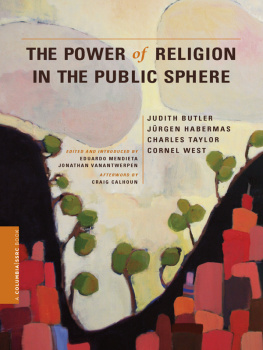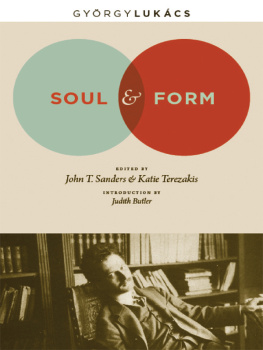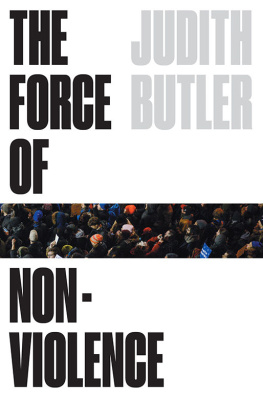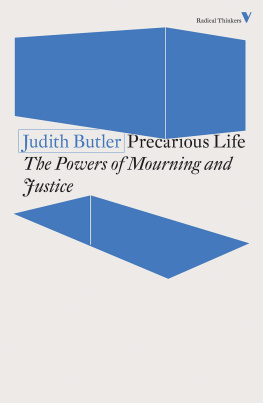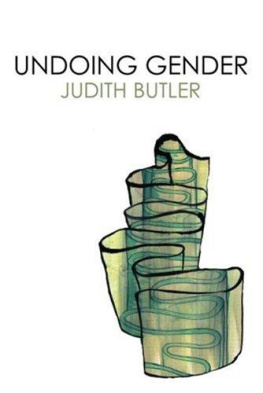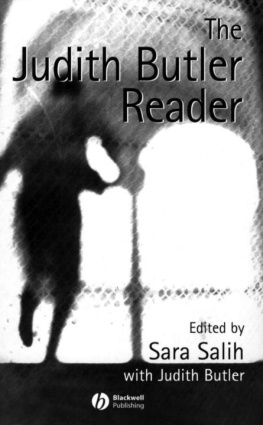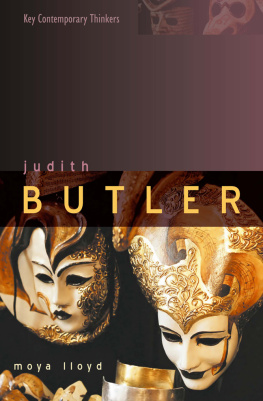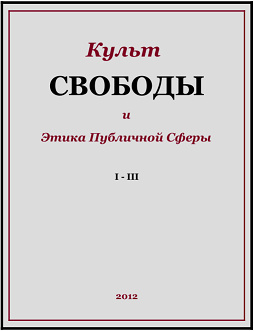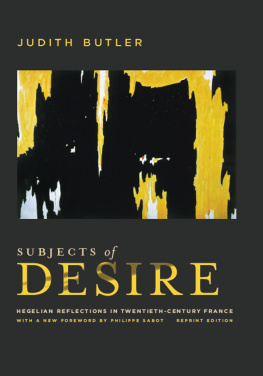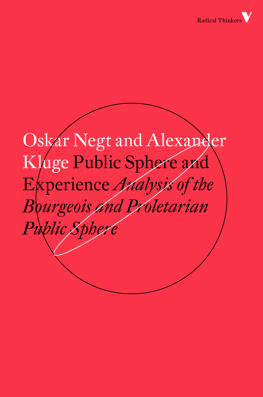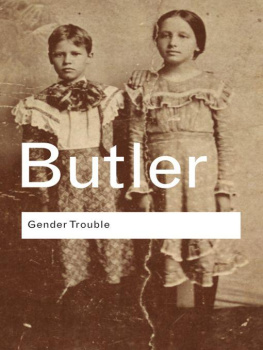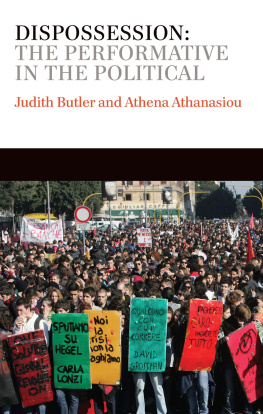THE POWER OF RELIGION
IN THE PUBLIC SPHERE
The POWER
of RELIGION
in the
PUBLIC SPHERE
JUDITH BUTLER
JRGEN HABERMAS
CHARLES TAYLOR
CORNEL WEST
Edited and introduced by
Eduardo Mendieta and Jonathan VanAntwerpen
Afterword by Craig Calhoun
COLUMBIA UNIVERSITY PRESS
A COLUMBIA / SSRC BOOK
NEW YORK
Columbia University Press
Publishers Since 1893
New York Chichester, West Sussex
cup.columbia.edu
Copyright 2011 The Social Science Research Council
All rights reserved
E-ISBN 978-0-231-52725-5
Library of Congress Cataloging-in-Publication Data
The power of religion in the public sphere / Judith Butler [et al.]; edited with an introduction by Eduardo Mendieta and Jonathan VanAntwerpen; with an afterword by Craig Calhoun.
p. cm.
Includes bibliographical references.
ISBN 978-0-231-15645-5 (cloth: alk. paper) ISBN 978-0-231-15646-2 (pbk.: alk. paper)
1. Civil religion. 2. Religion and state. 3. Religion and politics.
I. Butler, Judith, 1956II. Mendieta, Eduardo. III. VanAntwerpen, Jonathan, 1970IV. Title.
BL98.5.P69 2011
201.72dc22
2010028751
A Columbia University Press E-book.
CUP would be pleased to hear about your reading experience with this e-book at .
References to Internet Web sites (URLs) were accurate at the time of writing. Neither the author nor Columbia University Press is responsible for Web sites that may have expired or changed since the book was prepared.
CONTENTS
EDUARDO MENDIETA AND JONATHAN VANANTWERPEN
JRGEN HABERMAS
CHARLES TAYLOR
JUDITH BUTLER
CORNEL WEST
CRAIG CALHOUN
This volume is the result of an event that was jointly sponsored by three different institutions, with particular support and encouragement from a number of individuals. Abbreviated versions of the essays published here were first presented at a public event in the historic Great Hall of New York Citys Cooper Union. Held October 22, 2009, the event was cosponsored by New York Universitys Institute for Public Knowledge, the Social Science Research Council, and Stony Brook University. Over a thousand people converged, queuing around the block and eventually packing the Great Hall to listen to Judith Butler, Jrgen Habermas, Charles Taylor, and Cornel West hold forth and engage with one another for almost five hours. In addition to this volumes four main chapters, edited transcripts of dialogues between the authors are also reproduced here, interwoven between individual contributions, as they were at the event itself. Craig Calhoun, our co-organizer for the event, generously agreed to write an afterword.
We are especially grateful to our four authors for their participation in the public dialogue and for graciously writing and then editing their texts and reviewing the transcripts of their extemporaneous remarks. Without their willingness, generosity, and temerity, this book would not have been possible. We are also indebted to Craig Calhoun, who arranged financial support for the public dialogue, and to Robert Crease, Eric Kaler, and Nancy Squires at Stony Brook University, who provided additional support and encouragement. We owe special thanks to Ruth Braunstein, Samuel Carter, and Evan Ray of NYU (for assistance in organizing the event); to Paul Price, Charles Gelman, and Jessica Polebaum of the SSRC (for assistance with manuscript preparation and help with other details); to Matthias Fritsch, Mara Herrera Lima, David Kyuman Kim, and Max Pensky (for timely and helpful comments on an earlier version of our introduction); and to Wendy Lochner of Columbia University Press (who made the volumes publication an editorial priority). We are, above all, thankful to the more than one thousand individuals who participated in a long and undeniably epic event. This book is a testament to the vitality of the public sphere, in its uniquely American incarnation.
EDUARDO MENDIETA AND JONATHAN VANANTWERPEN
Many of our dominant stories about religion and public life are myths that bear little relation to either our political life or our everyday experience. Religion is neither merely private, for instance, nor purely irrational. And the public sphere is neither a realm of straightforward rational deliberation nor a smooth space of unforced assent. Yet these understandings of both religion and public life have long been pervasive, perhaps especially within academic circles. In recent years, however, and in the midst of a widespread resurgence of interest in the public importance of religion, there has been an increasingly sophisticated series of intellectual interventions challenging us to reconsider our most basic categories of research, analysis, and critique. Just as, in an earlier period, feminists and other scholars raised fundamental questions about the meaning of the public and its relation to the private, today the very categories of the religious and the secularand of secularism and religionare being revisited, reworked, and rethought.
Such rethinking, we believe, represents a significant moment of opportunity. With this in mind, we invited four prominent public philosophersJudith Butler, Jrgen Habermas, Charles Taylor, and Cornel Westto take part in a dialogue on the power of religion in the public sphere. This book represents the remarkable response from these important thinkers. In this volume, as in the public event that inspired it, these four intellectuals address both one another and a broader public, each taking up a different strand of the complicated engagement between religion and the public sphere. Each of our contributors is a highly respected scholar and a well-known public intellectual. Each is a philosopher, though all have moved well beyond the academic discipline of philosophy. Each has a distinctive intellectual style, a particular philosophical project, a wide interdisciplinary reach, and a strong commitment to public engagement. Together they represent some of the most influential and original philosophical voices writing today, spanning the spectrum of critical theory in its latest forms, from pragmatism and poststructuralism to feminist theory and critical race theory, hermeneutics, phenomenology, the philosophy of language, and beyond. Through their individual essays, as well as in their dialogues with one another, they provide us with fresh takes on what has been for each of them an abiding concern with the place of religion in the public sphere.
The study of the public sphere was pioneered in a provocative and incisive way by Jrgen Habermass The Structural Transformation of the Public Sphere, and contemporary discussions of the public and related categories remain closely linked to this genealogical work, crafted more than forty years ago and translated into English in the late 1980s. The book offered a historical reconstruction of the emergence, growth, and eventual decline of the bourgeois public sphere, aiming to elucidate its normative dimensions and to distill an ideal type. The public sphere that began to emerge in the eighteenth century, according to Habermas, developed as a social spacedistinct from the state, the economy, and the familyin which individuals could engage each other as private citizens deliberating about the common good. Perhaps the most crucial aspect of this new social structure was its status as a space of reason-giving, a realm in which reasons were forwarded and debated, accepted or rejected. Nominally, the public sphere was an indefinitely open space in which all reasons could be expressed and heard. Only those arguments and reasons would be accepted that could meet the assent of all participants. In this way, while the state monopolized coercion, the public sphere became the social space in which all force was transformed into the coercion of rational deliberationwhat Habermas would later develop as the unforced force of the better argument. At the same time, inasmuch as the bourgeois public sphere became an ideal that was never completely actualized, it turned into an unremitting self-critique of modern society that simultaneously called forth greater scrutiny of the public sphere itself.


